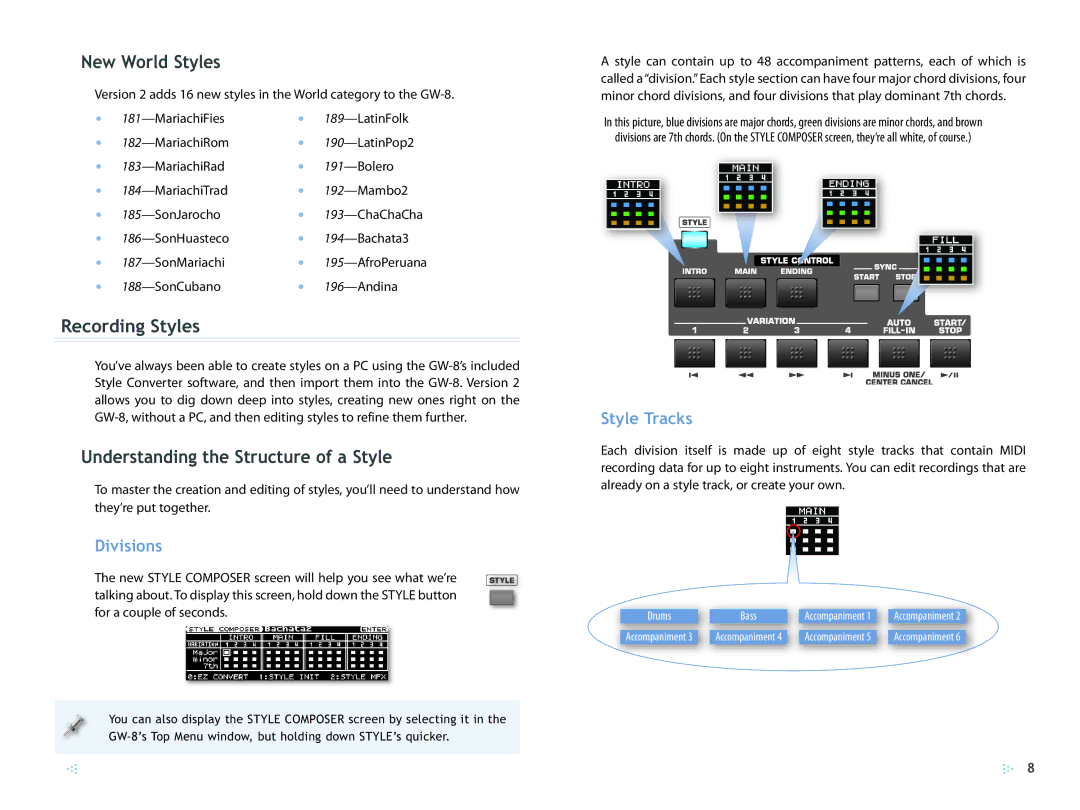
New World Styles
Version 2 adds 16 new styles in the World category to the
• | • | ||
• | • | ||
• | • | ||
• | • | ||
• | • | ||
• | • | ||
• | • | ||
• | • |
Recording Styles
You’ve always been able to create styles on a PC using the
Understanding the Structure of a Style
To master the creation and editing of styles, you’ll need to understand how they’re put together.
Divisions
The new STYLE COMPOSER screen will help you see what we’re talking about. To display this screen, hold down the STYLE button for a couple of seconds.
You can also display the STYLE COMPOSER screen by selecting it in the
A style can contain up to 48 accompaniment patterns, each of which is called a “division.”Each style section can have four major chord divisions, four minor chord divisions, and four divisions that play dominant 7th chords.
In this picture, blue divisions are major chords, green divisions are minor chords, and brown
divisions are 7th chords. (On the STYLE COMPOSER screen, they’re all white, of course.)
Style Tracks
Each division itself is made up of eight style tracks that contain MIDI recording data for up to eight instruments. You can edit recordings that are already on a style track, or create your own.
Drums |
| Bass |
| Accompaniment 1 |
| Accompaniment 2 | |
|
|
|
|
|
|
| |
Accompaniment 3 | Accompaniment 4 |
| Accompaniment 5 |
| Accompaniment 6 | ||
8
